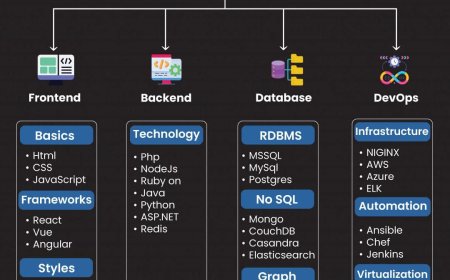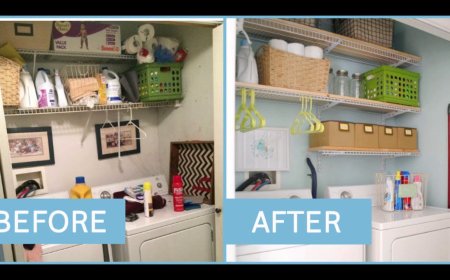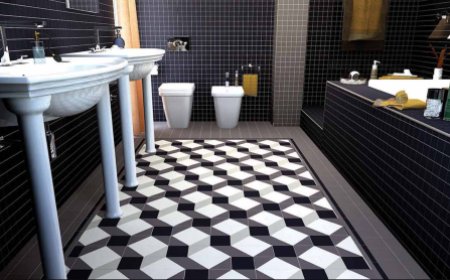WordPress and Its Competitors: A Deep Dive Into the Website Builder Landscape
This post will talk about WordPress, look at its biggest competitors, and help you choose the ideal platform for you based on your goals, budget, and level of technical knowledge.

In today's digital environment, businesses, entrepreneurs, and professionals all need a website that is strong and adaptable. WordPress has been the most popular platform for years, powering more than 40% of all websites on the internet. But it's not the only choice. Several strong competitors have come up since low-code and no-code solutions became popular. These companies offer a wide range of capabilities for customers with different levels of technical knowledge.
This post will talk about WordPress, look at its biggest competitors, and help you choose the ideal platform for you based on your goals, budget, and level of technical knowledge.
What is WordPress?
WordPress is a free and open-source content management system (CMS) that was first released in 2003. There are two primary types of it:
-
WordPress.org: You can host it yourself and change it a lot.
-
WordPress.com: Fatest Managed WordPress hosting with restrictions unless you pay for premium plans
WordPress lets anyone make anything from personal blogs to full-scale eCommerce sites, portfolios, and enterprise apps. It has dozens of plugins, themes, and a large developer community.
What WordPress does well
1. Open Source Freedom
You can change anything about WordPress because it is open source. You can change your site as much as you want if you know how to code or have access to a professional.
2. The Plugin Ecosystem
You can add features like contact forms, SEO tools, eCommerce support, and membership portals with more than 59,000 free plugins and many paid ones.
3. The ability to grow
WordPress can handle both small blogs and websites that generate millions of visits per month. It can grow well with the right hosting and optimization.
4. Good for SEO
WordPress lets you fully handle search engine optimization with plugins like Yoast SEO and All in One SEO.
5. Help and Community
There are always people who can help because there are thousands of tutorials, forums, and developers in a huge global community.
Things that aren't great about WordPress
WordPress is popular, but it's not perfect:
-
Hard for beginners to learn
-
Security issues (because of using plugins from other companies)
-
What needs to be done to keep it running (updates, backups, etc.)
-
Problems with performance on cheap hosting plans
Competitors to WordPress: Who's in the Race?
Here are the most important WordPress competitors, each with its own strengths that appeal to different sorts of users:
1. Wix
Wix is a cloud-based website builder that lets you drag and drop anything, making it great for beginners who want to get started quickly and easily.
Pros:
-
Easy-to-use editor
-
Hosting and security built in
-
Templates that work well on mobile
-
App Store for more features
Cons:
-
Customization is limited.
-
It's hard to move away from Wix
-
WordPress has better advanced SEO options.
Best for: personal sites, portfolios, and small enterprises with simple needs
2. Squarespace
Squarespace is known for its beautiful templates and all-in-one service. It is for creative people and professionals who desire good looks without having to code.
Pros:
-
Pretty templates
-
Editor that is easy to use
-
Analytics built in
-
eCommerce that works together
Cons:
-
Not as adaptable as WordPress
-
Third-party extensions are limited.
-
There is no free plan, simply a free trial.
Ideal for: photographers, artists, eateries, and personal branding
3. Shopify
Shopify is a dedicated eCommerce platform that makes it easy for users to set up online stores rapidly. It comes with built-in payment, shipping, and inventory tools.
Pros:
-
A complete eCommerce solution
-
Payments and taxes are handled together.
-
Great for dropshipping
-
Safe and quick hosting
Cons:
-
Plans that cost a lot each month
-
You need to know how to code (Liquid language) to customize.
-
Not great for sites that focus on content
Best for: D2C brands, online retailers, and anyone who want to start an eCommerce business
4. Webflow
Webflow is a sophisticated visual builder that lets you code and use a WYSIWYG interface at the same time. A lot of designers and developers utilize it.
Pros:
-
Creating bespoke CSS and JavaScript for visual development
-
The features of a CMS
-
Great performance and SEO
-
No extra plugins
Cons:
-
The learning curve is steep.
-
Not good for people who use it casually
-
Prices go up as you use more
Best for: Startups, agencies, and designers who need very specific designs
5. Weebly
Square now owns Weebly, which is a simple site builder with built-in eCommerce functionality and clear pricing.
Pros:
-
A constructor that lets you drag & drop
-
Plans that are cheap
-
Tools for SEO built in
-
Integration of Square payments
Cons:
-
Not a lot of options for personalization
-
Not many changes or new ideas
-
Not as many features as other options
Best for: people who want to save money, small internet enterprises, and simple websites
6. Drupal
Drupal is an open-source CMS that is more complicated and technical than WordPress. Developers that make complicated, secure sites like it best.
Pros:
-
Very safe
-
Adaptable for complicated sites
-
A strong framework for roles and permissions for users
Cons:
-
Dependent on the developer
-
Difficult to learn
-
Not as many people as WordPress
Best for: government, institutions, and business sites that need rigorous security and structure
7. Ghost
Ghost is a simple CMS made just for blogging and publishing. It's made to be fast and a fantastic place to write.
Pros:
-
Quick and simple
-
Make content your main focus
-
Support for native newsletters and memberships
Cons:
-
Not good for websites that do a lot of things
-
A smaller ecosystem of plugins and themes
Ideal for: independent media, bloggers, and writers
How far can you go with customization?
The level of flexibility they provide is one of the most essential things that sets platforms apart. WordPress is known for letting you change a lot of things via code, plugins, and themes. On the other hand, platforms like Wix and Squarespace don't let you change the backend functionality as much. Webflow, on the other hand, lets you change the look of your site without using PHP, which is better than WordPress.
WordPress and Webflow are the best options if your brand needs custom workflows, complicated integrations, or a headless architecture.
Performance and Speed: Who Loads Faster?
The speed of a website has a direct effect on both SEO and the user experience. All platforms try to improve performance, however WordPress sites can have problems if they have too many plugins or are hosted on bad infrastructure. Competitors like Ghost and Webflow frequently provide very fast experiences right out of the box because they are simple and can host static sites.
Managed hosting services like Rocon make WordPress run much better by adding server-side caching, CDN integration, and automatic scaling.
What is protected and what is not when it comes to security?
Security is a top issue that can't be changed, especially for eCommerce and sites with a lot of traffic. WordPress sites use plugins from other companies, which can make them less safe if they aren't kept up to date. Shopify, Squarespace, and Wix are examples of platforms that take care of security at the platform level, which makes non-technical users feel safer.
WordPress may be equally as safe as its competitors, or even safer, provided you use the correct stack and a safe hosting provider like Rocon.
Business Use Cases: How to Match Tools to Different Industries
Not every firm can use every platform. For example:
-
Shopify is the best choice for online companies that sell things.
-
Photographers and event planners really like Squarespace.
-
Design agencies and SaaS startups like Webflow.
-
WordPress is used by everyone, from little enterprises to big publishers around the world.
-
This makes WordPress the most flexible choice, but not always the easiest. Plugins, APIs, and apps that work together
-
Your website doesn't work alone; it often needs to talk to email tools, CRMs, analytics platforms, or booking systems. WordPress has the most ways to connect with other programs through APIs and plugins. Shopify and Wix have great app stores, but you can't change them very much.
-
WordPress is the best choice if you want integrations and flexibility. This is especially true if you use REST API and GraphQL.
What Platform Is Best for You?
The best website builder for you depends on what you want to do:
-
If you want complete control, SEO that can grow, and thousands of plugins, use WordPress.
-
If you're new to web design or need a quick, stunning solution, choose Wix or Squarespace.
-
Choose Shopify if you want to start an eCommerce business.
-
If you need a lot of design freedom and speed, use Webflow.
-
If all you care about is content and publication, choose Ghost.
-
If you're in charge of government or enterprise-level initiatives, use Drupal.
WordPress Hosting: A Key Element
The quality of your WordPress experience is mostly determined by your hosting provider. That's where best WordPress hosting for high traffic like Rocon come in.
Rocon gives:
-
Backups and updates that happen automatically
-
Built-in performance enhancement
-
Help with SEO and guided setup
-
Dashboards that are good for developers and agencies
-
Rocon takes care of the infrastructure so that users may focus on making things instead of managing them.
Last Thoughts
WordPress is still the best and most adaptable platform for making websites of all sizes and types. But there are other ways to fix it. There is probably a tool out there that is better suited to your needs, whether you are blogging, running an online store, sharing stories through pictures, or quickly making prototypes.
Before you start using any platform, think about:
-
How much power do you want?
-
How good are you with technology?
-
How much money do you have?
-
Do you need to scale?
-
What do you value most: speed, looks, SEO, or integrations?
-
The web is more varied and easy to use than ever in 2025. No matter if you're a solitary entrepreneur, a rising brand, or an experienced developer, there's a platform for you.
-
Need help picking a new website or moving your old one?







































